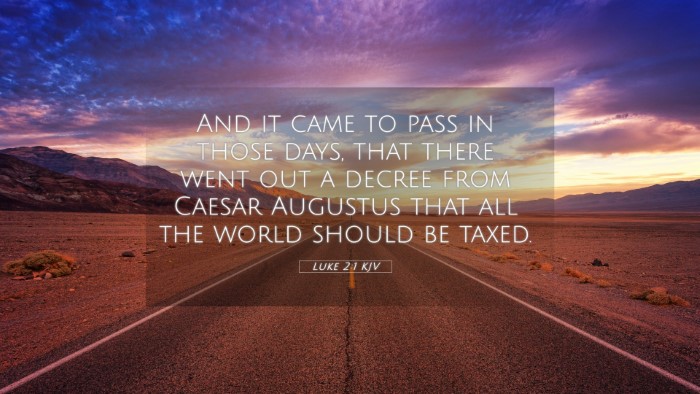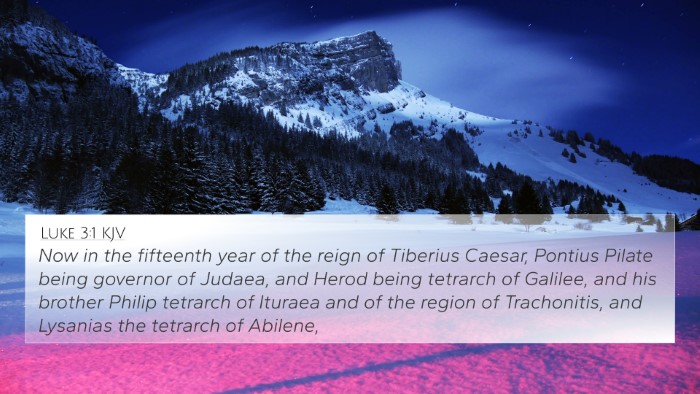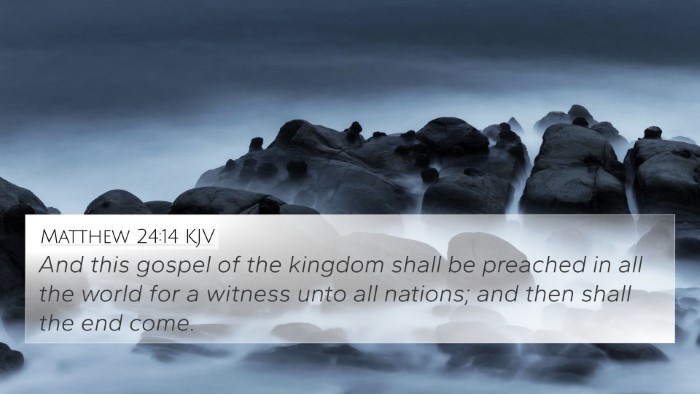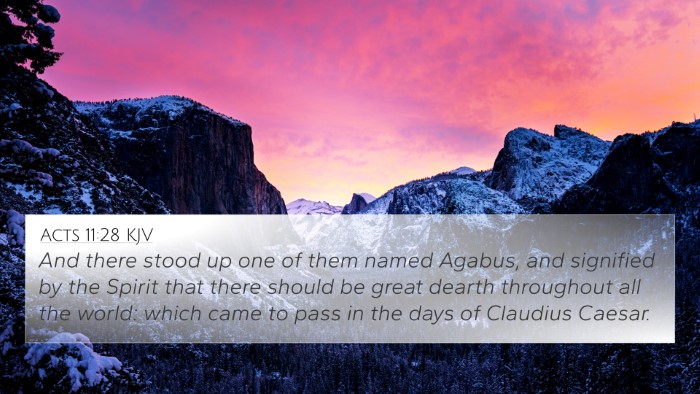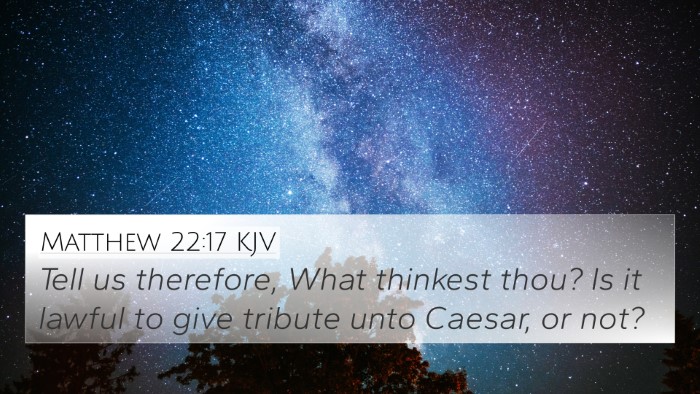Understanding Luke 2:1
Luke 2:1 states: "And it came to pass in those days, that there went out a decree from Caesar Augustus, that all the world should be taxed." This verse is pivotal in the nativity narrative as it sets the stage for the birth of Jesus and intertwines the secular authority of Rome with the divine plan of God.
Summary of Meaning
This verse emphasizes the historical context of Jesus' birth, illustrating that God’s plan often unfolds through worldly events.
- Imperial Decree: The mention of Caesar Augustus highlights the oppressive taxation and the logistics of counting people, which was a common Roman practice.
- World Significance: The phrase “all the world” indicates the vast reach of the Roman Empire and suggests that the birth of Christ is significant to all of humanity, transcending local or tribal significance.
- Divine Providence: The decree serves as a means for Mary and Joseph to travel to Bethlehem, fulfilling prophetic texts about the birthplace of the Messiah.
Bible Verse Cross-References
Luke 2:1 can be cross-referenced with several other biblical passages that enhance its understanding:
- Micah 5:2: Prophesies Jesus' birth in Bethlehem.
- Matthew 1:22-23: Refers to the fulfillment of prophecy regarding Jesus' birth.
- Isaiah 9:6: Describes the nature of the Messiah.
- Romans 13:1: Discusses the God-given authority of governing authorities.
- Luke 3:1: Provides additional historical context regarding rulers at the time of Jesus' ministry.
- John 7:42: References that Messiah comes from Bethlehem.
- Acts 2:30: Points to the prophecy concerning Jesus' lineage.
Insights from Public Domain Commentaries
Matthew Henry
Henry emphasizes the divine orchestration at play in this decree, noting how God uses the rulers of the world to fulfill His purposes. He suggests that even in times of oppression and taxation, the birth of the Messiah brings hope and fulfillment of God’s promises.
Albert Barnes
Barnes reflects on the authoritative nature of Caesar Augustus and how his decree became a pivotal moment for the fulfillment of prophecy. He highlights the importance of this event in the context of history, reminding readers that God’s sovereignty is evident even in secular affairs.
Adam Clarke
Clarke provides a detailed historical background regarding the census and the implications of the taxation imposed by Rome. He notes that this was a sign of Roman control and yet serves as a backdrop to the miraculous birth of Christ, showing how divine and earthly events are interconnected.
Thematic Connections
The verse connects the themes of divine purpose and . The actions of Caesar Augustus lead to the fulfillment of a divine prophecy, showcasing how God’s will is accomplished through various means.
Conclusion
In summary, Luke 2:1 not only serves as a historical anchor for the story of Jesus’ nativity but also invites deeper understanding through inter-Biblical dialogue. It is a powerful reminder of how God orchestrates events in history for the fulfillment of His plans, inviting believers to consider the connections between biblical texts.

